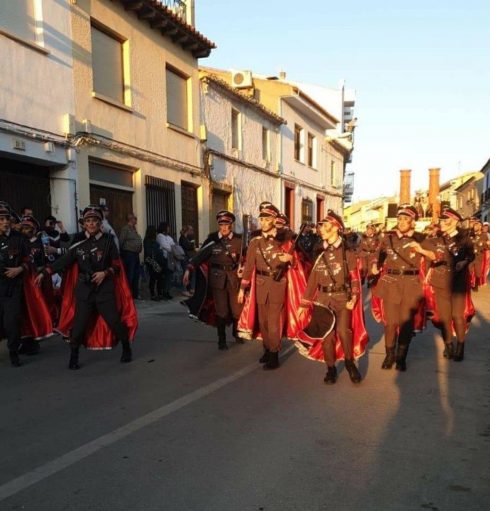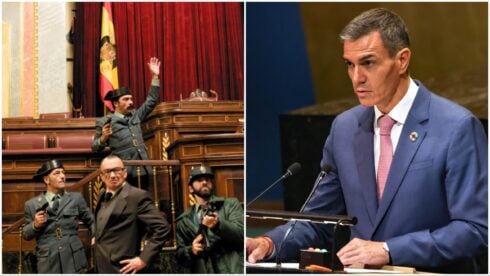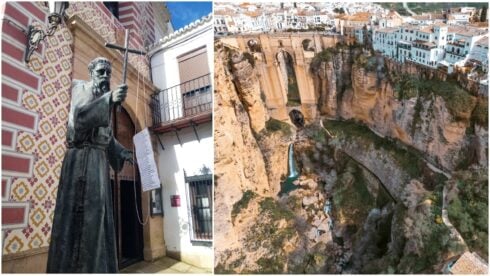AS Easter quickly approaches, many local councils are preparing for their region’s carnivals and festivals and cultural boards decide on their individual themes for the year.
Often the themes of these events are innocent and fun, giving the towns youngsters a chance to dress up in fancy dress and take part in activities and family games.
Sometimes however the councils get things wrong and this Ayuntamiento thought a ‘holocaust’ theme would be a good idea.
The council of Las Mesas, a town in Castilla-La Mancha got it spectacularly wrong as dozens of residents took to the streets dressed as Nazi soldiers and Jewish prisoners.
Somehow the subject made it past numerous selection stages and past the local government.
One float was decorated as Auschwitz, complete with two chimneys and accompanied by a dominatrix style woman wearing swastikas, holding whips and flanked by two Doberman dogs.
Another float was adorned with the slogan ‘Arbeit macht frei’
or ‘work sets you free’ while
another was decorated as a German Tank.
Most disturbingly of all children were dressed up to look like Nazi soldiers while others wore the striped overalls and prison numbers associated with the Jewish prisoners.
Pictures of the event were shared on social media by distressed and appalled onlookers and news quickly spread across the country, with overwhelming condemnation coming quickly.
The hash tag #EsFascismoNoesCarnaval (Fascism is not for Carnival) also began trending on Twitter.
News of the parade even reached the Israeli Embassy in Madrid whose members didn’t mince their words when approached for a comment.
A spokesman from the embassy called the event a ‘blatant display of antisemitism’ and publicly condemned the organisers of the parade, the Asociacion Cultural El Chaparral.
The local council of Las Mesas was forced to release a statement explaining the reasoning behind the allowing of such a theme.
It read: “Our intention was to represent the Holocaust as a carnival theme, the understanding was that it would be in a way that would be a tribute to the millions of people who unjustly died in the extermination that took place during the Second World War.
“However, once we saw the display we share the criticisms it produced. “If the initial objective was to commemorate the victims, it is clear that it has not been achieved.”
According to local residents, one of the most unnerving things about the whole parade was how unaffected the onlookers appeared to be, a sure sign that the horrendous impact of the events during the Holocaust have been so normalised in modern culture.
Click here to read more News from The Olive Press.












It is well past the time for Spanish educational and cultural authorities on the local and regional levels to deal with popular ignorance, prejudice and violence towards women, children, gender minorities and ethnic groups outside of the benighted national myth. This ugliness is as much a part of Spanish culture as paella, wine and tapas, but is overlooked as inconvenient to tourism.